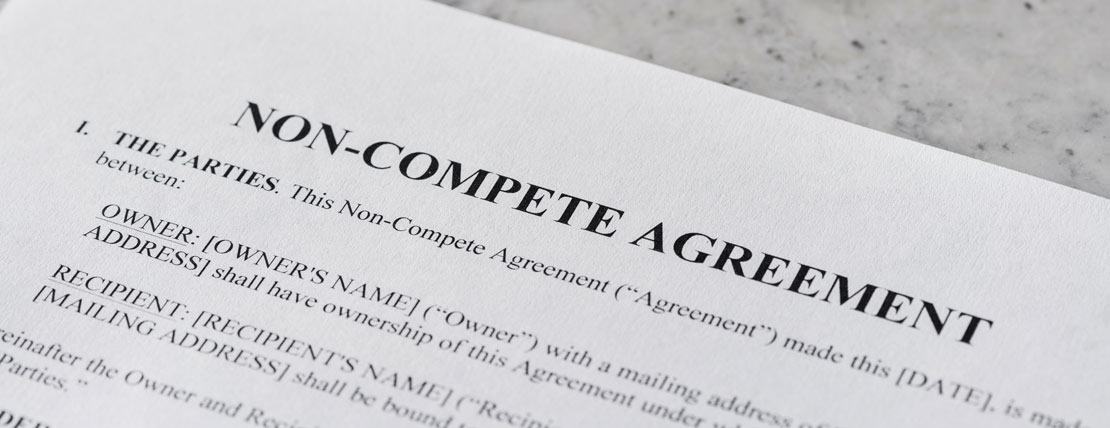- FTC put a pause to this clause. The Federal Trade Commission on April 23 issued a final rule that bans new noncompete agreements and makes the vast majority of existing noncompetes unenforceable.
- Impact of ban would be widespan. The commission said an estimated 1 in 5 U.S. workers are currently subject to a noncompete.
- Lawsuits regarding the rule are likely. Objections to the new rule are expected, which could lead to some employer questions about how to apply it.
Employers can no longer form noncompete agreements with employees, and only a fraction of existing agreements — those that apply to senior executives — will remain enforceable, under an April 23 new final rule from the Federal Trade Commission (FTC).
The final rule will become effective 120 days after publication in the Federal Register.
Objections, which arose after the proposed rule was released, are expected to continue, which could spark employer questions about how it should be applied. One such objection came from the U.S. Chamber of Commerce, which filed a lawsuit on April 24 in federal court in the Eastern District of Texas on the grounds that the FTC lacks jurisdiction to issue this rule. In its press release, the Chamber stated the final rule “is not only unlawful but also a blatant power grab that will undermine American businesses’ ability to remain competitive.”
The FTC laid out the details of its final rule in a press release posted on the commission’s website. “Noncompete clauses keep wages low, suppress new ideas and rob the American economy of dynamism, including from the more than 8,500 new startups that would be created a year once noncompetes are banned,” FTC Chair Lina M. Khan stated in the release. “The FTC’s final rule to ban noncompetes will ensure Americans have the freedom to pursue a new job, start a new business or bring a new idea to market.”
A Common Tool that May Be Too Commonly Used
Companies have traditionally used noncompete agreements to prevent employees from sharing confidential company information (e.g., trade secrets, proprietary processes, product development pathways) with outside entities (including future employers) during or after employment. Many of these contracts also specify a certain length of time (e.g., three years) when the employee is barred from working for a competitor after leaving the employer.
The FTC and the Government Accountability Office (GAO) have stated such agreements are overapplied and can impede job mobility, job growth, wages and new business creation.
A report on the GAO website stated, “Employers have historically used these agreements for highly skilled workers and executives with access to trade secrets or other proprietary information. However, employers we surveyed reported having all kinds of workers sign them — from executives to hourly workers — even though many lower-wage workers may not have access to confidential information.”
The FTC said an estimated 30 million U.S. workers (nearly 20% of the American workforce) are subject to a noncompete. According to the commission, “Noncompetes often force workers to either stay in a job they want to leave or bear other significant harms and costs, such as being forced to switch to a lower-paying field, being forced to relocate, being forced to leave the workforce altogether or being forced to defend against expensive litigation.”
In a review of two national studies, the GAO found 18% of U.S. workers were subject to noncompete agreements, and 38% had been subject to such an agreement at some time in their careers. More than half of the 446 private-sector employers responding to a GAO survey reported at least some of their workers had noncompetes.
What’s Enforceable? What’s No Longer Enforceable?
Under the FTC’s new rule, existing noncompetes for most workers will no longer be enforceable after the rule’s effective date. Existing noncompetes for senior executives — who the commission said represent less than 0.75% of workers — can remain in force under the final rule, but employers are banned from creating or attempting to enforce any new noncompetes, even if they involve senior executives. The final rule defines senior executives as workers earning more than $151,164 annually and who are in policy-making positions.
Employers will be required to notify affected employees that they will no longer be subject to a noncompete agreement.
What’s a Company to Do?
While the new rule will lead to significant changes for employers, the commission advised that existing tools remain for organizations to protect their investments.
“Trade secret laws and nondisclosure agreements (NDAs) both provide employers with well-established means to protect proprietary and other sensitive information,” the FTC stated in its press release. “Researchers estimate that over 95% of workers with a noncompete already have an NDA.”
The commission also advised that improving wages and working conditions may help employers retain workers and reduce concerns about talent leaving to join competitors.
Anticipated Results from the Final Rule
The FTC estimated the final rule will lead to new business formation growing by 2.7% per year, resulting in more than 8,500 additional new businesses created each year. In addition, it stated the final rule is expected to result in:
- Higher earnings for workers, with estimated earnings increasing for the average worker by an additional $524 per year
- Lower health care costs by up to $194 billion over the next decade
- Increased innovation, leading to an estimated average increase of 17,000 to 29,000 more patents each year for the next 10 years under the final rule.
Editor’s Note: Additional Content
For more information and resources related to this article, see the pages below, which offer quick access to all WorldatWork content on these topics:








